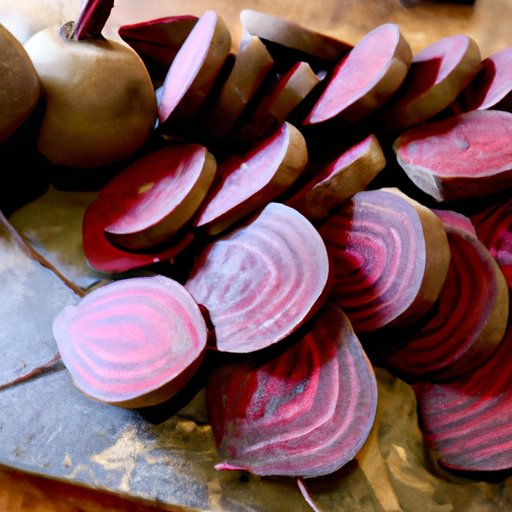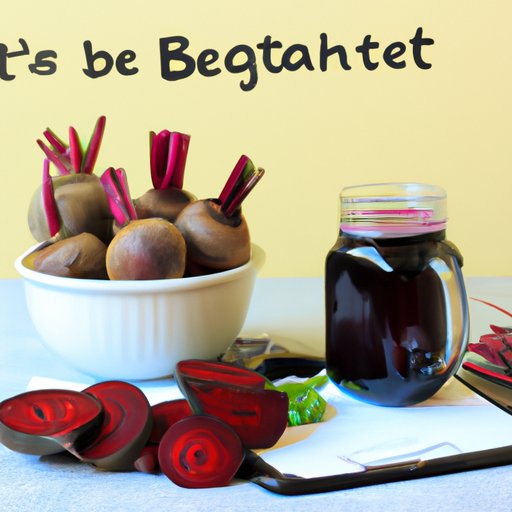Introduction
Beets are a versatile vegetable that are loaded with vitamins, minerals, and antioxidants. They have been used for centuries for their medicinal properties, and in recent years, they have become popular for their health benefits. In this article, we’ll explore the nutritional benefits and risks of eating beets, as well as how to incorporate them into your diet.
Exploring the Nutritional Benefits of Beets
Beets are a great source of many essential vitamins and minerals, including magnesium, potassium, phosphorus, vitamin C, and folate. They also contain high levels of antioxidants, which help protect against oxidative damage and reduce inflammation. Additionally, beets are a good source of dietary fiber, which can help keep you regular and aid in digestion.
When it comes to comparing beet nutrition to other vegetables, beets are one of the best sources of phytonutrients, which are compounds found in plants that have protective and disease-preventing properties. Beets also contain betalains, which are pigments that provide antioxidant, anti-inflammatory, and detoxifying effects.
Are Beets a Superfood?
Recent research has highlighted the potential health benefits of eating beets. Studies have shown that beets can help reduce blood pressure, improve circulation, and lower cholesterol. Additionally, studies have suggested that beets may help improve brain function, boost energy levels, and even reduce the risk of certain cancers.
Beets are often referred to as a “superfood” due to their high levels of nutrients and antioxidants. While there is no scientific definition of a superfood, beets certainly fit the bill due to their impressive nutrient profile and potential health benefits.

The Health Risks and Benefits of Eating Beets
While beets are generally considered safe to eat, there are some potential side effects associated with consuming too many beets. These include stomach cramps, nausea, and diarrhea. Additionally, people with kidney or gallbladder problems should be aware that beets are high in oxalates, which can worsen these conditions.
In terms of how much beet consumption is healthy, it’s recommended that adults consume 1-2 servings of beets per day. A single serving is approximately one cup of cooked beets, or two cups of raw beets. Keep in mind that beets are high in sugar, so it’s important to keep your portions in check.

How to Incorporate Beets into Your Diet
There are several types of beets available, including red, white, yellow, and candy-striped varieties. All types of beets can be eaten raw, cooked, roasted, or pickled. When preparing beets, it’s important to use fresh beets, as canned or frozen beets can lose some of their nutritional value.
When it comes to cooking beets, there are endless possibilities. Roasting beets brings out their natural sweetness, while boiling or steaming beets helps to retain their nutrients. Beets can also be added to salads, soups, smoothies, or baked goods. For those looking for a sweet treat, try baking some beet brownies or making some beet muffins.
Conclusion
Beets are an incredibly nutritious vegetable that are packed with vitamins, minerals, and antioxidants. There are potential health benefits associated with eating beets, such as improved brain function, increased energy levels, and reduced risk of certain cancers. However, it’s important to keep in mind that beets are high in sugar and oxalates, so it’s important to consume them in moderation. With so many different ways to prepare beets, there is sure to be a beet recipe for everyone.
Whether you’re looking for a way to give your salads an extra kick or just want to enjoy the unique flavor of beets, incorporating them into your diet is a great way to reap their nutritional benefits. Just remember to keep your portions in check and choose fresh beets when possible.
(Note: Is this article not meeting your expectations? Do you have knowledge or insights to share? Unlock new opportunities and expand your reach by joining our authors team. Click Registration to join us and share your expertise with our readers.)
